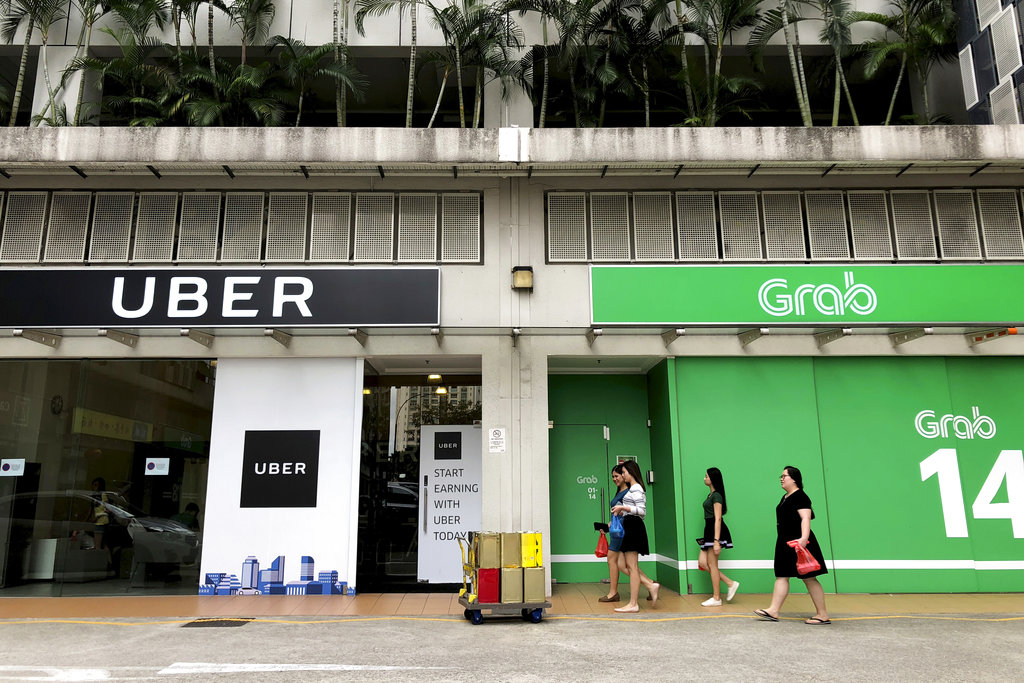
Office workers walk past Grab and Uber offices during their lunch hour Monday, March 26, 2018, in Singapore. Grab, a fast growing Southeast Asian ridesharing, food delivery and financial services business, said Monday that Uber will take a 27.5 percent stake in it and a seat on its board as part of the deal. (Photo WONG MAY-E / ap)
The Land Transportation Franchising and Regulatory Board (LTFRB) is concerned that the Philippine Competition Commission’s (PCC) order to Grab and Uber to continue to operate independently in the country, even if the latter has already shuttered its Southeast Asian operations, may adversely affect the riding public.
“PCC is focusing on the competition aspect,” LTFRB board member Aileen Lizada said on Saturday. “Our concern is how will the complaints, road crashes, if any, will be handled by Uber if they no longer have employees? Who will pay for the cost to operate?
In an order released on Saturday, the PCC said the two transportation network companies (TNCs) should “maintain the independence of their business operations” for the “entire duration” of the commission’s motu propio review on the deal. The PCC, however, did not state when it intends to conclude its review.
The PCC order came a day before the Uber app is scheduled to go offline, which is on Sunday, April 8.
Early this week, PCC and LTFRB officials met to discuss what would become of the ride-sharing industry with Uber’s exit from the Southeast Asian region.
Lizada said that they stressed in that meeting that safety measures have been put in place by the board “to prevent any monopoly by any TNC,” which the PCC fears would happen.
For one, she noted, there are currently four new TNCs that have sought accreditation from the LTFRB. Once these TNCs – Lag Go, Hype, Owto and Pira – satisfy the LTFRB’s requirements, they will take the place of Uber, affording the riding public more transport options.
Also, she said that TNCs could not increase their fares on their own as they are required to follow the fare structure approved by the LTFRB.
As for the app-based drivers, the franchises that are given to them by the LTFRB are not exclusive to any TNC, which means that they get to decide on who they want to drive for.
Rather than unbundle the deal entered by the two TNCs, Lizada said that LTFRB should instead be “called [out] to fast-track the processing of the new players.”
It remains unclear how the PCC intends to enforce its order on Uber, especially that its employees are already on a four-month garden leave. The Inquirer also learned that Uber has only around 10 employees left in the country who are part of the transition team.
The Inquirer sought both Uber and Grab officials for comment on the PCC’s order but has yet to receive a reply as of writing.
On Friday, Grab Philippines country head Brian Cu assured the National Privacy Commission that there would be no migration to their platform of the personal data of the 1.2 million Uber users, which may include credit card details.
He noted that the data which would be transferred to them are only those of the drivers, who would have to give their consent to Grab. /atm

